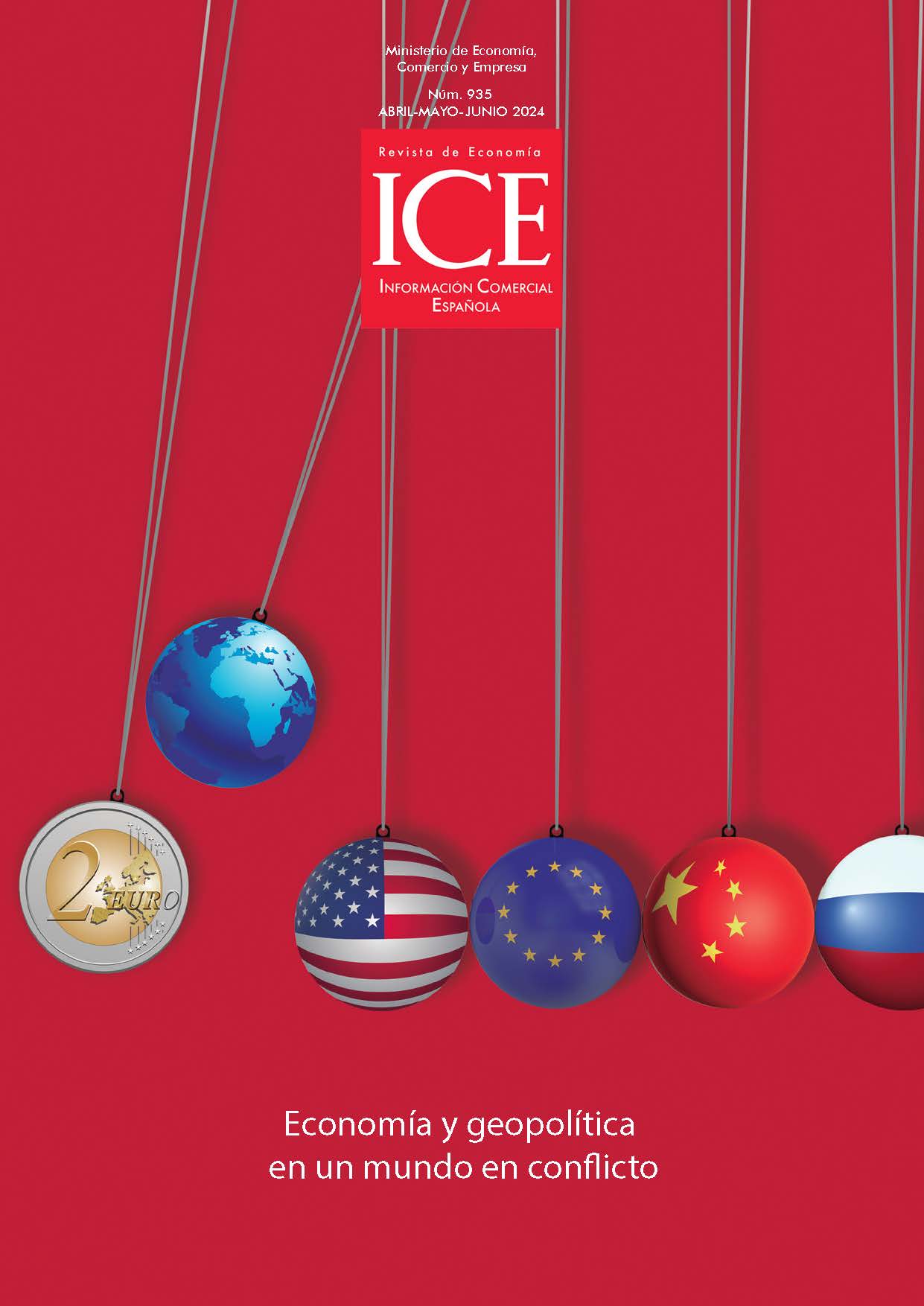Economic sanctions in armed conflicts
##plugins.themes.bootstrap3.article.sidebar##
Downloads
##plugins.themes.bootstrap3.article.main##
Economic sanctions as an instrument to curb strategies of aggression by one country against another, or civil wars, and to discourage possible future policies of violent and illegal action in the international arena have a long history. This article analyses these sanctions from the perspective of economic theory, using economic analysis of law, game theory and public choice theory as tools. Reference is also made to a key issue: the effectiveness of these sanctioning measures, projecting these ideas both to some past cases and to the sanctions generated by the Russian invasion of Ukraine.
##plugins.themes.bootstrap3.article.details##
- Francisco Cabrillo, Rocío Albert, Law, income distribution and inequality , ICE, Revista de Economía: No. 915 (2020): Tendencias actuales del análisis económico del Derecho
- Francisco Cabrillo, Presentación , ICE, Revista de Economía: No. 915 (2020): Tendencias actuales del análisis económico del Derecho
Ahn, D. P., & Ludema, R. D. (2020). The Sword and the Shield. The Economics of Targeted Sanctions. European Economic Review, 130. https://doi.org/10.1016/j.euroecorev.2020.103587
Albert, R., & Cabrillo, F. (2006). Gresham’s law in politics: Why are politicians not the most remarkable men for probity and punctuality? European Journal of Law and Economics, 21(2), 99-112.
Becker, G. S. (1968). Crime and Punishment: An Economic Approach. Journal of Political Economy, 76(2), 169-217.
Becker, G. S. (1985). Public Policies, Pressure Groups, and Dead Weight Costs. Journal of Public Economics, 28(3), 329-347.
Bonetti, S. (1997). A test of the public choice theory of economic sanctions. Applied Economic Letters, 4(12), 729-732.
Bown, C. P. (2023, June 21). Russia’s war on Ukraine: A sanctions timeline. Peterson Institute for International Economics Blogs. https://policycommons.net/artifacts/4310116/russias-war-on-ukraine/5120491/
Davis, S., & Ness, I. (Eds.) (2023). Sanctions as War: Anti-Imperialist Perspectives on American Geo-Economic Strategy. Haymarket Books.
European Parliament-Think Tank. (2023, September 28). EU sanctions on Russia: Update, economic impact and outlook [Briefing]. European Parliamentary Research Service (EPRS).
Felbermayr, G., Morgan, T. C., Syropoulos, C., & Yotov, Y. V. (2021). Understanding economic sanctions: Interdisciplinary perspectives on theory and evidence. European Economic Review, 135. https://doi.org/10.1016/j.euroecorev.2021.103720
Hufbauer, G. C., & Hogan, M. (2022, March 16). How effective are sanctions against Russia? Peterson Institute for International Economics-Blogs Realtime Economics. https://www.piie.com/blogs/realtime-economics/how-effective-are-sanctions-against-russia
Hufbauer, G. C., Schott, J. J., Elliott, K. A., & Oegg, B. (1985). Economic Sanctions Reconsidered. Peterson Institute for International Economics.
Hufbauer, G. C., Schott, J. J., Elliott, K. A., & Oegg, B. (2007). Economic Sanctions Reconsidered. Peterson Institute for International Economics.
Hufbauer, G. C., Schott, J. J., Elliott, K. A., & Oegg, B. (2021). Economic Sanctions Reconsidered. Peterson Institute for International Economics.
Kaempfer, W. H., & Lowenberg, A. D. (1988). The Theory of International Economic Sanctions: A Public Choice Approach. American Economic Review, 78(4), 786-793.
Kaempfer, W. H., & Lowenberg, A. D. (1992). International Economic Sanctions: A public Choice Perspective. Westview Press.
Mulder, N. (2022). The Economic Weapon: The Rise of Sanctions as a Tool of
Modern War. Yale University Press.
Olson, M. (1965). The Logic of Collective Action. Public Goods and the Theory of Groups. Harvard University Press.
Ouyang, Y., & Morgan, M. A. (2023). Talking Tough in U.S. Foreign Policy. Executive Actions, National Emergencies, and Economic Sanctions. Palgrave Macmillan.
Van Bergeijk, P. A.G. (Ed.) (2021). Research handbook on economic sanctions. Edward Elgar Publishing.


